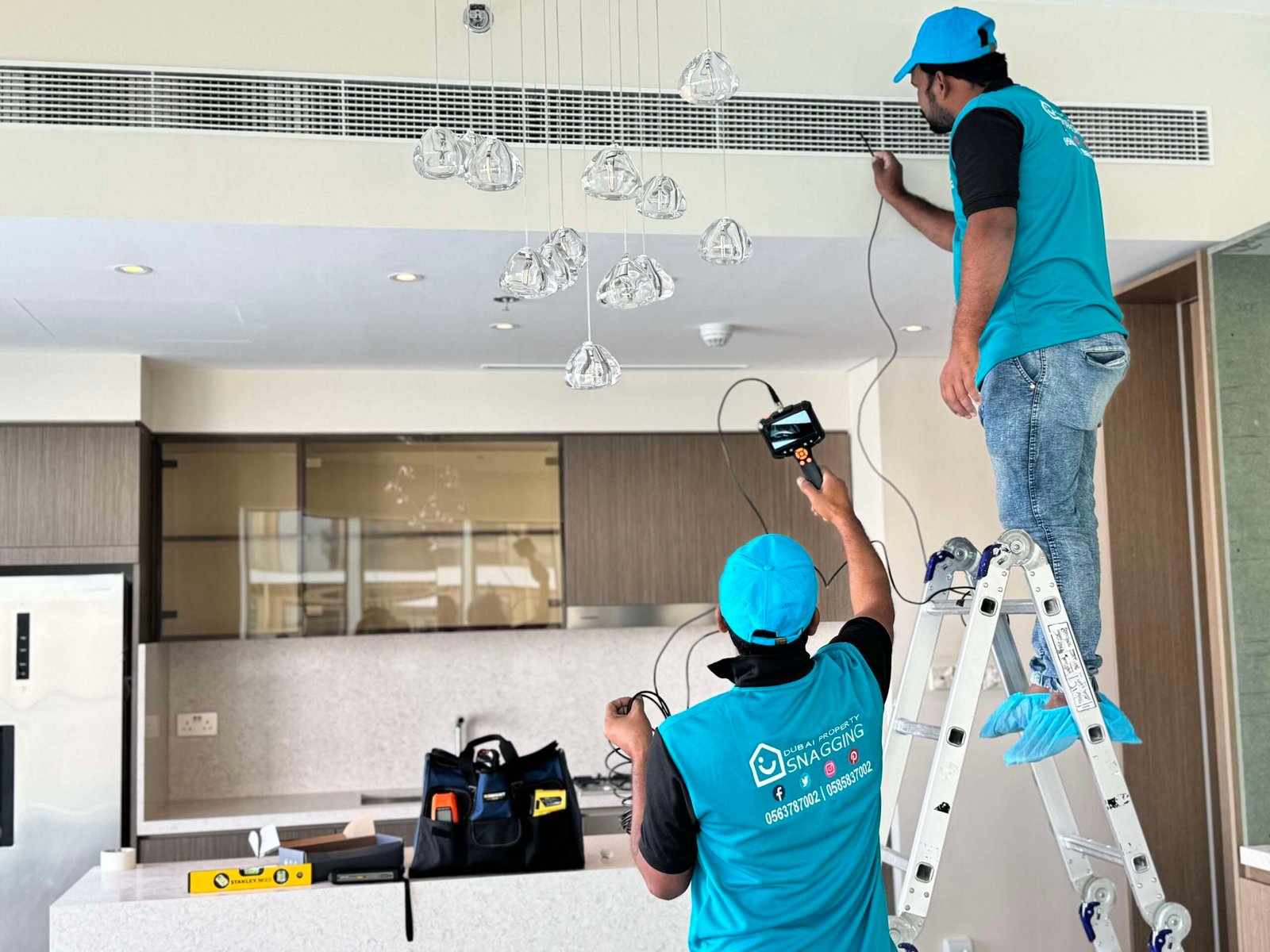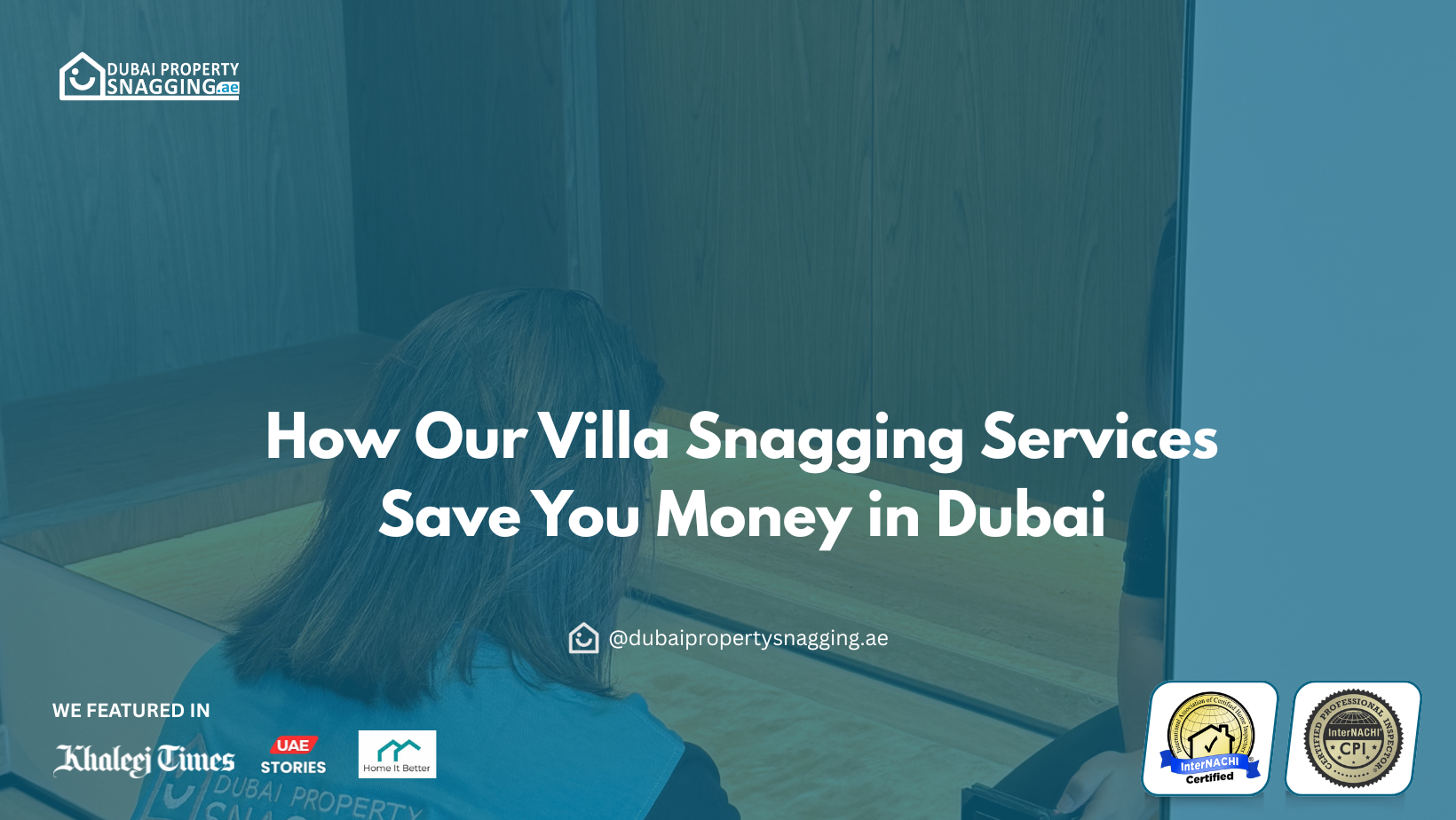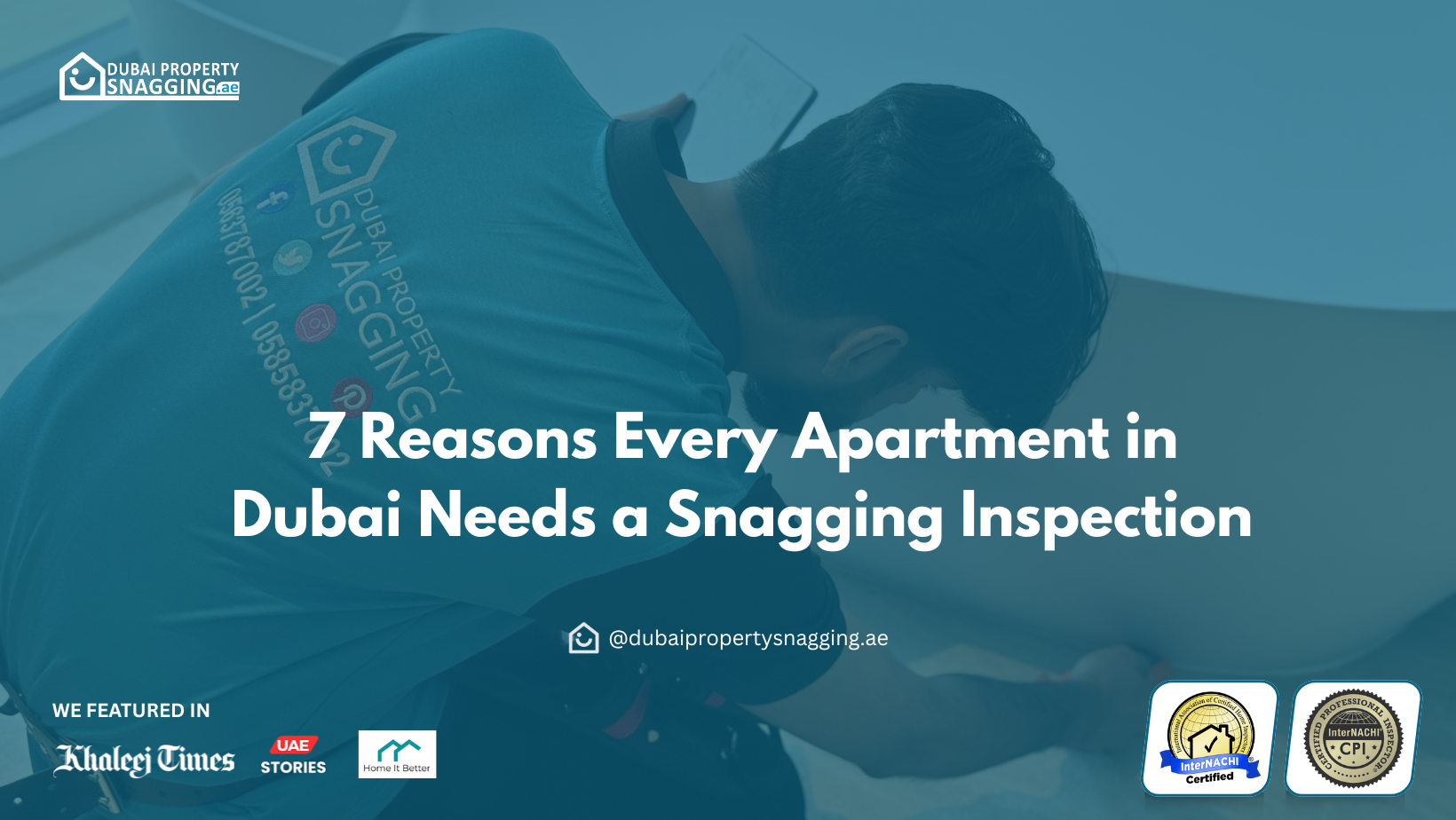Property Inspection UAE: What’s Included?
Whether you’re purchasing a new home, renting a property, or investing in real estate, a property inspection is a crucial step to ensure you’re making an informed decision. In the UAE’s fast-paced property market, where both residential and commercial properties are constantly evolving, a thorough inspection can save you from costly surprises down the road.
But what exactly does a property inspection in the UAE cover? In this blog, we’ll break down the key elements of a property inspection and explain why it’s essential for anyone considering a real estate investment in the UAE.
What is a Property Inspection?
A property inspection is a comprehensive evaluation of a building’s condition, typically conducted by a professional inspector before a sale, purchase, or tenancy agreement. The goal is to identify any issues, whether major or minor, that may affect the property’s value, safety, or long-term durability. In the UAE, where climate extremes and rapid construction are common, property inspections play a vital role in safeguarding your investment.
What Does a Property Inspection in the UAE Include?
1. Structural Integrity and Foundation
The foundation and overall structure of the building are the first things an inspector will evaluate. In the UAE, where the extreme heat and humidity can affect buildings over time, checking for signs of cracks, settling, or structural movement is essential. Inspectors will assess:
- Cracks in walls, ceilings, and floors
- Foundation stability
- Visible signs of shifting or settling in load-bearing walls
- Structural damage caused by erosion or soil instability
These issues can be costly to fix later on, making it essential to identify them early.
2. Roof and Exterior Conditions
The roof is one of the most vulnerable parts of a property, especially in areas with harsh sun exposure like the UAE. Inspectors will check the roof for:
- Leaks or water damage
- Wear and tear from sun exposure
- Proper insulation
- Condition of gutters, downspouts, and drainage systems
The exterior of the building is also evaluated for cracks in the walls, damaged facades, and any signs of neglect that could lead to further issues.
3. Plumbing and Water Systems
Plumbing is another critical aspect of any property inspection. Inspectors will look for leaks, water pressure issues, and signs of damage to pipes. In the UAE, where water quality can vary, it’s also important to ensure that the water supply is up to standard and there are no risks of contamination.
Key aspects of plumbing inspection include:
- Checking all water fixtures (faucets, showers, toilets)
- Inspecting pipes for leaks or blockages
- Assessing water pressure
- Evaluating hot water systems
- Testing for drainage and sewage system functionality
A plumbing issue left unnoticed can lead to significant damage over time, so it’s important to address any problems immediately.
4. Electrical Systems
Ensuring that a property’s electrical system is in good working order is essential for both safety and functionality. Property inspectors in the UAE will check:
- The condition of wiring and circuits
- Functionality of outlets, switches, and lighting
- Safety of electrical panels and circuit breakers
- Potential electrical hazards such as exposed wires or outdated systems
With the UAE’s high demand for air conditioning and electronic appliances, it’s especially important to confirm that the electrical system can handle the load without issues.
5. Air Conditioning and HVAC Systems
Given the extreme temperatures in the UAE, air conditioning is not just a luxury; it’s a necessity. Property inspectors will assess the HVAC (Heating, Ventilation, and Air Conditioning) system to ensure it is functioning correctly, including:
- Checking for any leaks or refrigerant issues
- Ensuring air conditioners are efficient and cooling properly
- Examining air filters and ducts for cleanliness
- Verifying thermostats and controls
A malfunctioning AC system can be a major inconvenience, particularly in the hot summer months, so ensuring everything is working properly is critical.
6. Interior Conditions
A thorough inspection of the property’s interior is key to identifying any cosmetic or structural defects. Inspectors will check for:
- Cracks in the walls or ceilings
- Damage to flooring, tiles, and carpeting
- Proper fitting of doors and windows
- Condition of paint and finishes
- Signs of mold or dampness, which is especially important in coastal areas
These elements may not affect the structure of the building but can influence the overall livability and appeal of the property.
7. Safety Features
Ensuring that a property is safe for occupancy is another key element of a property inspection. Inspectors will evaluate the following:
- Functioning smoke detectors and fire alarms
- Fire exits and emergency routes
- Secure locks and security systems
- Condition of balconies, railings, and staircases
- Presence of carbon monoxide detectors (where applicable)
In the UAE, safety regulations are taken seriously, and a thorough inspection will help ensure that the property complies with local building codes.
8. Pest and Infestation Checks
Pests can be a common issue in the UAE, particularly in older properties or buildings near undeveloped areas. Property inspectors will look for signs of pest infestations, such as:
- Rodents (rats, mice)
- Termites
- Cockroaches or ants
- Other insect infestations
Pests can damage both the structure and the interior finishes of a building, so detecting and addressing infestations early on is crucial.
The Benefits of a Property Inspection in the UAE
1. Avoid Costly Repairs
The most obvious benefit of a property inspection is the opportunity to identify any issues before they turn into expensive repairs. Whether it’s a small plumbing issue or a more serious structural defect, catching problems early can save you a lot of money in the long run.
2. Peace of Mind
Purchasing or renting a property is a significant financial commitment, and you want to ensure you’re making the right choice. A property inspection provides peace of mind, knowing that the property is in good condition and that you won’t be caught off guard by unexpected problems later on.
3. Negotiation Power
If issues are discovered during the inspection, you can use this information to negotiate with the seller or landlord. Whether it’s asking for a price reduction or requesting that repairs be made before the final handover, a property inspection gives you leverage in the negotiation process.
4. Compliance with Local Regulations
UAE property laws are stringent when it comes to building standards and safety. A property inspection ensures that the building is compliant with local regulations, including fire safety, electrical standards, and environmental considerations.
Conclusion
Property inspections in the UAE are an essential part of the buying, renting, or investment process. They provide an in-depth look at the condition of a property, helping you identify potential issues and avoid unexpected costs. Whether you’re purchasing a luxury villa in Dubai or an office space in Abu Dhabi, a professional property inspection is a smart step toward protecting your investment and ensuring peace of mind.
By including key elements like structural integrity, plumbing, electrical systems, and HVAC checks, a property inspection ensures that your new home or commercial space is ready for occupancy without any hidden surprises




